Research
ILI’s objective is to create a partnership with businesses to create opportunities for scholars to research diversity, equity, and inclusion activities in organizations. This research is being published in top academic and practitioner journals. The purpose of the research is to better understand the processes involved in helping and hindering organizations as they attempt to become diverse, fair, and inclusive organizations and develop evidence-based practices to achieve DEI goals.
The following table highlights examples of the areas of research expertise by the world-class ILI faculty.
Scholar: Leanne Atwater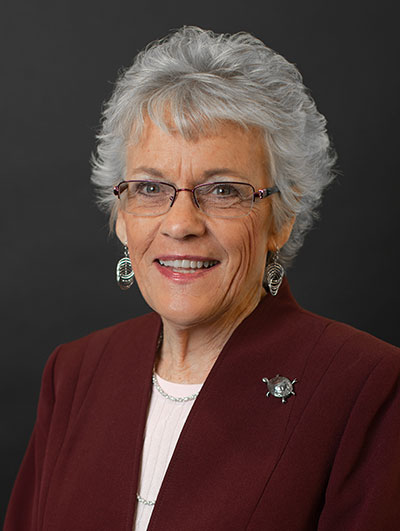
C. T. Bauer Professor of Leadership and Management in the Bauer College of Business at the University of Houston. She has a Ph.D. in Organizational Psychology from Claremont Graduate University. She has served in positions as Department Chair and Interim Dean. She also has experience as a research psychologist and teaching experience at the U.S. Naval Academy. Research AreasHer research deals with a variety of gender issues. A sample of this work is highlighted below. First, she has done research demonstrating that men and women deal with discipline delivered by men and women differently. Specifically, women are likely to accept discipline delivered by men while men are reluctant to accept discipline delivered by women. Women delivering discipline also need to allow the other person to present their side which is less important for men. This work suggests that special training in discipline delivery may be needed for women. She has also done work in the area of self-awareness which suggests that women tend to underestimate how their leadership behaviors are viewed by others, particularly by their bosses. This underestimation can be problematic as it reduces the likelihood of asking for promotions or believing one is capable of such. Interestingly bosses did not rate the leadership behaviors of men and women differently. Reasons women gave for their underestimation were largely lack of confidence, insufficient feedback, and humility. Concrete steps need to be taken in how we educate and train women to increase their self-awareness (e.g., multi-source feedback processes). She has recently written about the #MeToo movement in response to sexual harassment in the workplace. She learned that in general, both men and women understand what sexual harassment is and agree about the differing severity of different types of harassment (e.g., statements vs. behaviors). However, very few men believe they have ever engaged in sexual harassment whereas nearly 60% of women said they had experienced it. Unfortunately, her work highlighted the backlash that women are experiencing as a result of the #MeToo movement. For example, 21% of men and 12% of women said in the wake of #MeToo, they are more reluctant to hire women for jobs that require close interpersonal interactions with men (e.g., traveling); 16% of men said they were more likely to exclude women from social interactions and 27% said they have avoided having meetings with women with no others present. These behaviors are not going to result in good workplace outcomes for women and managers need to be very perceptive to ensure that they are not occurring. On the positive side, her research into the reactions to #MeToo also revealed that both men and women believe #MeToo is empowering women and that employers are taking allegations of sexual harassment more seriously. |
Scholar: Derek R. Avery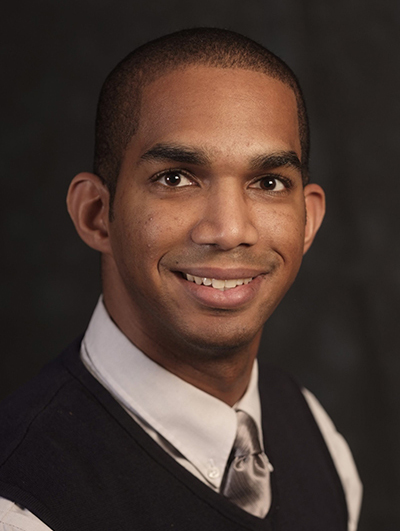
C. T. Bauer Chair of Inclusive Leadership, Bauer College of Business, University of Houston. Ph.D. 2001 Rice University, Houston, TX, Industrial/Organizational Psychology Research AreasPublished two papers on minority leaders focusing on stigma-by-association. They show that customers sometimes engage in bias against organizations that employ minority leaders (i.e., are less apt to patronize them), but this bias tends to be limited to situations wherein there are non-racial factors that can be blamed, such as when the organization is objectively underperforming or its facilities are substandard. Because there is no evidence of customer bias against minority leaders when firms perform well or have nicer facilities, the practical implication is that firms should focus on setting their leaders up to be successful rather than capitulating to perceived customer preferences for White leaders. In another study of minority leaders, we examined the impact of corporate leadership ethnically resembling the employees they lead. The less the resemblance, the less employees tend to trust their employer and the more apt they are to interpret ambiguous actions as workplace mistreatment. This shows that employees interpret the representativeness of their leaders as a cue when making sense of the things that happen to them (and around them) at work. |
Scholar: Sana (Shih-chi) Chiu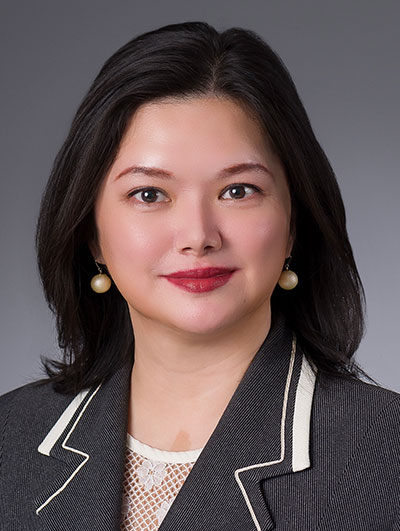
Assistant Professor of the Management & Leadership Department at the Bauer College of Business at the University of Houston. Ph.D. University of Missouri in Columbia. Research AreasHer research has been focused on key factors behind a firm’s commitment to achieving the triple bottom line, i.e., social performance, environmental performance, and financial performance. Specifically, her research deals with the psychological/cognitive mechanisms that influence managerial decision-making in relation to corporate responsible and irresponsible actions. She also studies the differential impacts between female and male leaders on corporate sustainability performance. Dr. Chiu is particularly interested in how strategic leaders cope with stakeholders’ (conflicting) demands and ways to motivate those at the top of corporate hierarchy (firm executives and board directors) to engage in more prosocial behaviors during critical organizational change events (e.g., restructuring), environmental crisis, and unexpected external shocks (e.g., COVID-19 pandemic). |
Scholar: Juan M. Madera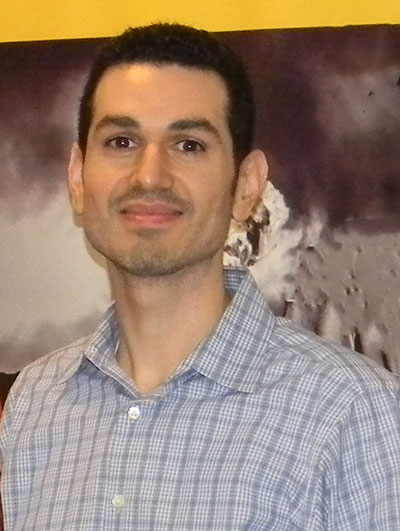
Curtis L. Carlson Endowed Professor at the Conrad N. Hilton College of Hospitality Management, University of Houston (UH). Dr. Madera received a doctoral degree in Industrial-Organizational Psychology from Rice University. Research AreasHis research interest includes diversity and discrimination in the workplace. He has authored more than 80 peer-reviewed journal articles, trade articles and book chapters. In particular, his research has examined (1) how corporate diversity management messages influence job attitudes from current employees and applicants (Guchait, Madera, & Dawson, 2016; Madera, 2017; Madera, 2018; Madera, Dawson, & Neal, 2016; Madera, King, & Hebl, 2013; Madera, Lee, & Kapoor, 2017; Waight & Madera, 2011); (2) the ways in which discrimination manifests in HR practices and how employees perceive discrimination (Bahardwaja, Lee, & Madera, 2017; Bavishi, Madera, & Hebl, 2010; Madera & Hebl, 2019; King, Madera, Hebl, Knight, & Mendoza, 2006; Madera, 2010; Madera, 2013; Madera, 2016; Madera, Dawson, & Neal, 2013; Madera, Dawson, & Neal, 2016; Madera, Dawson, & Guchait, 2016; Madera, King, & Hebl, 2012; Madera & Abbott, 2012; Madera & Hebl, 2012; Madera & Hebl, 2013; Madera, Hebl, & Martin, 2009), and (3) how employees react to workplace sexual harassment in customer-service settings (Abbott, Elkins, & Madera, 2013; Madera 2018; Madera, Guchait, & Dawson, 2017; Madera, Lee, & Dawson, 2019; Madera, Podratz, King, & Hebl, 2007). Lastly, I also serve as a research fellow for the Center for Advancement UH Faculty Success where I am involved in research examining gender and racial bias in academic contexts, such as in the promotion and tenure process. |
Scholar: Dr. Chet Miller
C. T. Bauer Professor of Organizational Studies at the University of Houston. Ph.D. University of Texas in Austin, Texas. Research AreasHis research interest includes diversity and discrimination in the workplace. He has authored more than 80 peer-reviewed journal articles, trade articles and book chapters. Has extensive work in the cognitive diversity of the strategic apex, which focuses on diversity of perspectives and ideas about goals, strategies, task ideas, and task processes. He developed a valid and reliable direct measure of cognitive diversity which is widely used in the field. His publications in the area include: Miller, C. C., Burke, L. M., & Glick, W. H. (1998). Cognitive diversity among upper‐echelon executives: implications for strategic decision processes. Strategic Management Journal, 19(1), 39-58. Glick, W. H., Miller, C. C., & Huber, G. P. (1993). The impact of upper-echelon diversity on organizational performance. Organizational change and redesign: Ideas and insights for improving performance, 176, 214. Samba, C., Van Knippenberg, D., & Miller, C. C. (2018). The impact of strategic dissent on organizational outcomes: A meta‐analytic integration. Strategic Management Journal, 39(2), 379-402. Dr. Miller is currently leading a team of colleagues at Bauer (Dr. Avery, Dr. Chiu, Dr. Wesley, and Dr. Vera) in a comprehensive review of the upper echelon's cognitive diversity literature, asking the question: "Do different perspectives and ideas among senior leaders really make a difference?" |
Scholar: Vanessa Patrick
Associate Dean for Research, Bauer Professor of Marketing, Fulbright Specialist (2019-2022) and Lead Faculty for the Bauer Executive Women in Leadership Program at the Bauer College of Business at the University of Houston. She has a Ph.D. in Business from the University of Southern California, Los Angeles. Research AreasHer research deals with the psychology that underlies the two sides of the pleasure coin. On one hand, she studies the pursuit of pleasure in her work dealing with art, everyday aesthetics, design, and luxury branding. On the other hand, she develops strategies to help individuals successfully manage and control the pull of pleasure (self-regulation) and to pursue personal development and self-mastery in personal and professional spheres. Based on her research on compassionate self-control, identity-based choice and consumer well-being, she has developed courses that help women leaders achieve personal and professional mastery and success. She has also presented her work on this topic at numerous conferences and workshops. Another emerging area of research for Dr. Patrick is the area of inclusive design. Specifically, her research examines how organizations can offer products, services and experiences that meet the needs of a more diverse customer base, as well as consumer response to inclusive design. She has published the first paper on inclusive design in the field of marketing in the Journal of Consumer Psychology. She has developed a “starter kit” to help marketing professors include the topic of inclusive design in the classroom. The deck introduces the concept, provides examples and suggestions for in-class exercises/class discussions and 8 mini case studies that marketing professors might find useful. |
Scholar: Enrica N. Ruggs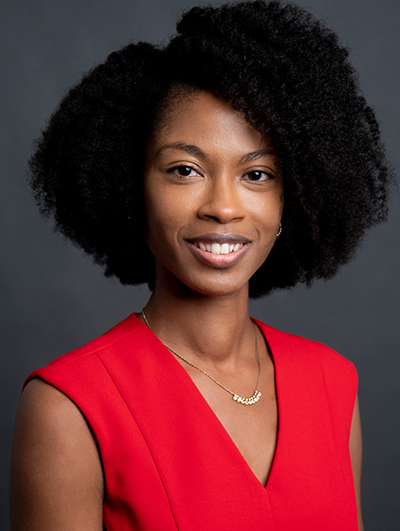
Associate Professor of Management in the Bauer College of Business at the University of Houston. She received her Ph.D. in Psychology from Rice University Research AreasMuch of her published research has examined the manifestation of subtle forms of discrimination toward individuals with stigma characteristics in workplace settings. I also examine strategies people use to manage their stigmatized identities at work and the effects of these strategies on worker outcomes. This work has shown that acknowledging visible stigmas can lead to positive evaluations from others for some identities (e.g., visible disabilities; Lyons et al., 2018), but perhaps not others (e.g., racial identity; Ruggs et al., 2019). However, acknowledging marginalized identities and behaving in ways that are authentic to this identity has positive benefits for the stigma bearer (e.g., Ruggs et al., 2019; Martinez et al; 2017). |
Scholar: David Sullivan
Assistant Professor in the Management and Leadership Department in the Bauer College of Business at the University of Houston. He received his Ph.D. in management from Texas A&M University. Research AreasHis research focuses on the psychological and cognitive experiences of people in the workplace. Regarding the experiences of women and bias in the workplace, one of his emerging areas of research examines the impact of gender bias on entrepreneurial endeavors. This research aims to improve the experiences of women entrepreneurs by developing greater understanding about the mechanisms that impact women entrepreneur’s and their ability to gain access to critical financing for the success of their ventures. Beyond gender bias in entrepreneurship, Dr. Sullivan also examines the impact of gender bias in performance management processes, particularly within the healthcare industry. |
Scholar: Alan Witt
Professor of Management & Leadership (Bauer), Public Policy (Hobby School), and Psychology (College of Liberal Arts and Social Sciences) Received his PhD from Tulane University (New Orleans). In 2005 named a fellow of the both the American Psychological Association and Society for Industrial and Organizational Psychology, Alan was one of 132 UH faculty listed in 2020 as among the most cited scholars in the world, reflecting being in the top 2% of their subfield discipline. Research AreasHis work in the DEIA arena began in the late 1980’s and early 1990’s when he debunked research suggesting gender differences in fairness-at-work issues, examined breadwinner vs. non-breadwinner perspectives (vs. male and female spousal roles), and attitudes toward persons with AIDS. During this period, Alan also began his association with the U.S. Department of Defense Equal Opportunity Management Institute (DEOMI). Following a career as a human resources director in a bank that had been annually named by the magazine, Working Mother, as one of the ten best companies for families, Alan began focusing on work-family issues. One of his papers may have been the first to actually link work-family issues with actual job performance—reinforcing the need to address work-family concerns. Ten times named a DEOMI summer faculty fellow, Alan has examined sensitive DEIA issues for the Department of Defense, including discrimination, don’t-ask-don’t-tell, hostile work environments, toxic leadership, interventions to stop sexual assaults, sexual harassment prevention strategies, and the training of equal opportunity advisors. At UH, he and Leanne Atwater (Department of Management and Leadership) led a research team funded by the National Science Foundation to study issues related to the work experiences of female faculty, particularly those in science, technology, engineering, and math (STEM) fields. Most recently, Alan has studied the impact of identity suppression, code-switching, leadership, and organizational climate on well-being, voice, and related issues. Along with a team of current and former PhD students, Alan very recently developed DEIA-relevant training for the City of Houston aimed at enhancing professionalism and civility at work. |